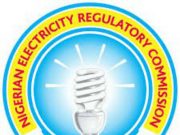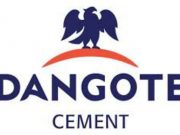Investment in infrastructure, creation of business-enabling policies, development of core industries and macroeconomic stability were some of the steps suggested recently by Alhaji Aliko Dangote to attain industrialisation.
He also recommended the facilitation of sectoral linkages and the sustenance of ongong efforts at ensuring security of lives, properties and investments across the country as measures.
The business mogul and President/Chief Executive, Dangote Group, gave the suggestions at the Second Adeola Odutola Lecture/Presidential Luncheon in Lagos, where he was the guest speaker.
The lecture, organised by the Manufacturers Association of Nigeria (MAN), had “An agenda for Nigeria’s industrialisation for the next decade’ as theme.
In his paper, Dangote examined the performance of the industrial sector in Nigeria; identified the nexus between industrialisation and economic development with Nigeria and China as case study.
He also analyzed the manufacturing sector in the country with focus on its growth trajectory, current status and challenges, and set an agenda for the next 10 years with an implementation roadmap.
He said: “The experience in various parts of the world has shown that industrialisation drives economic growth and development, which improves living standards as evident by the high output and per capita income in industrialised countries.
“The rate of industrialisation in Nigeria has been slow as evidenced by the low contribution of manufacturing to Gross Domestic Product (GDP), poor capacity utilization and constrained export of manufactured products within and outside the continent.
“For instance, Nigeria’s share of world output of 0.41 per cent, ranked 29th in the world which is unimpressive, considering its size and resource endowments. It ranks poorly, when compared with India at (3.1 per cent), South Korea (3.0 per cent) and China (28.7 per cent).
“Nigeria’s industrialisation process has been greatly challenged by structural and institutional constraints, particularly funding. These factors have over the years cumulatively contributed to its disappointing performance.
“For instance, in the last decade, average share of manufacturing value added to GDP in countries like China and Malaysia stood at 41 per cent and 38 per cent respectively; compared to 25 per cent in Nigeria.”
He said there are several factors that need to be in place to accelerate the growth of the manufacturing sector in Nigeria.
These include security and rule of law, industry-oriented government policy, adequate infrastructure, industry-oriented Research & Development (R&D), a well-developed SME sector; building of human capacity, and embrace of technology to improve efficiency through automation of manufacturing processes.
“To drive industrialisation and sustained economic growth in Nigeria, it is important that deliberate policies that are manufacturing-specific should be designed to support manufacturing activities and address the perennial challenges of the sector.
“It is important to note that the current government policies, if fully implemented, are good enough to address most of the challenges we are now facing,” Dangote said.
Among manufacturing challenges, he identified acute shortage of forex; dearth of long-term funds, limited infrastructure, policy inconsistency/implementation/enforcement, over-regulation, and multiple and high taxes for the industries.
Dangote said the manufacturing sector is beset with over 30 statutory taxes, levies, fees, etc. charged at multiple tiers of government.
He said in consideration of the afore-mentioned challenges, there is an urgent need for a shift in policy approach and strategy to reposition the manufacturing sector for growth over the next 10 years.
Setting an agenda for the next decade, Dangote said: “To achieve industrialisation goals, it is necessary for a nation to formulate plans and policies that will enhance and sustain industrial development.
“Sustainable industrial development involves establishment of a conducive environment to encourage investment and ensure efficient usage of resources to increase productivity and growth of the nation.
“Nigeria needs to henceforth intensify efforts at promoting industrialisation with specific focus on the attainment of the following targets in the next 10 years: 15 per cent manufacturing sector growth, 20 per cent manufacturing contribution to GDP, 15 per cent growth in export of manufactured products, 10 per cent increase in the share of manufacturing to total export merchandise“There is also need for stronger inter-industry linkage between SMEs and large corporations, improved manufacturing contribution to Government tax revenue and 20 per cent increase in manufacturing employment.”
Dangote also noted the imperative of focusing on sectors with great potential for inclusive growth, including the need for government (at all tiers) to ensure that they consult widely with relevant stakeholders when taking far reaching decisions on key sectors of the economy.
According to him, doing so would enhance long-term business plans by manufacturers.
Besides, he said policies that have been “tried- and- tested” should be backed with an Act of Parliament to give them legal backing and make them less susceptible to arbitrary changes by successive governments.
Industry, Trade and Investment Minister Otunba Adeniyi Adebayo, represented by the Director, Industry Development Department, Mr. Adewale Bakare, restated the Federal Government’s commitment to the providing the enabling environment for manufacturing and other businesses to thrive.
The highpoint of the event was the unveiling of a Blueprint for the Accelerated Development of Manufacturing in Nigeria 2.0 by MAN President, Mansur Ahmed.
Credit: thenationonlineng.net





































































